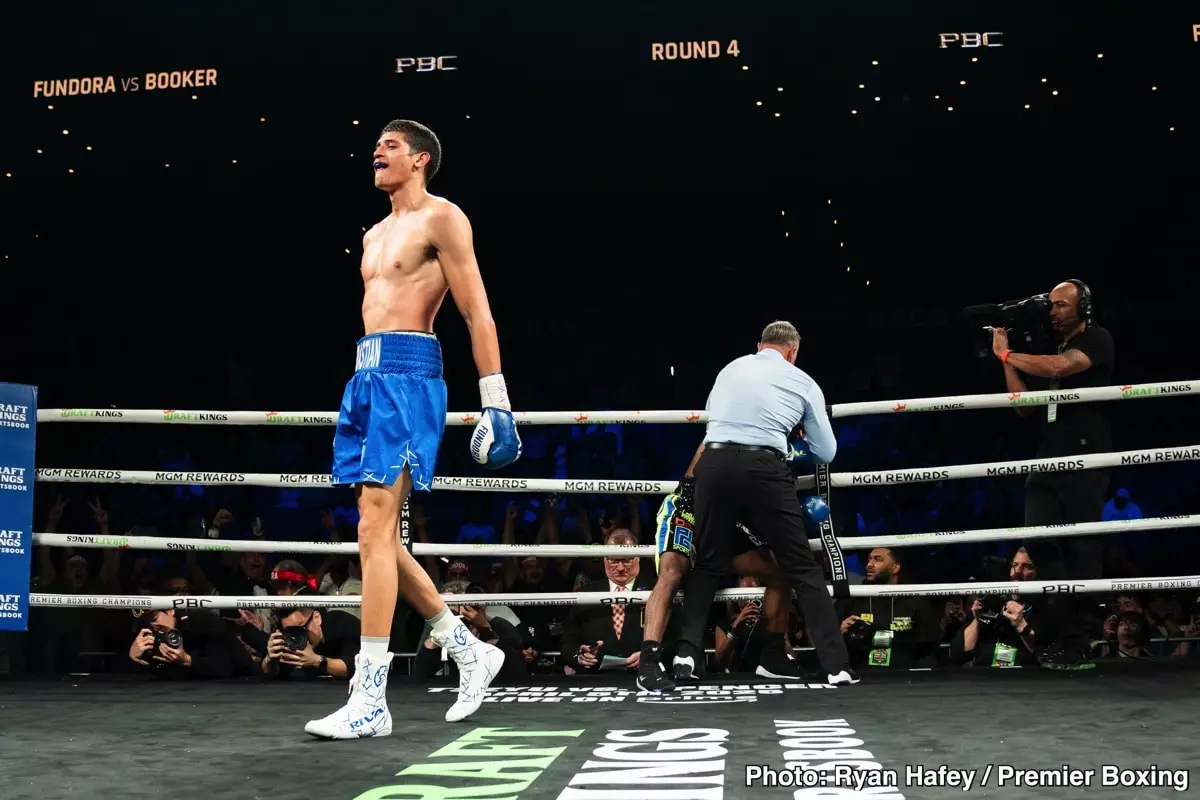The World Boxing Organization (WBO) has thrown a significant curveball into the junior middleweight division by mandating that Sebastian Fundora defend his title against rising star Xander Zayas. On the surface, this might appear to be a classic tale of emerging talent vs. established champion, but dig a little deeper, and it reveals a more complicated scenario driven by strategic maneuvering, promotional interests, and perhaps a touch of miscalculation.
Fundora, with a professional record of 22 wins, 1 loss, and 1 draw, boasts a solid reputation as a formidable fighter. His promoter, Sampson Lewkowicz, is openly prioritizing a unification match against IBF champion Bakhram Murtazaliev, reflecting a strategic approach to ascend the ranks and unify the title rather than getting tangled in what could be a time-consuming and potentially risky mandatory defense against Zayas.
The Intricacies of Promotion and Skill
Zayas, a mere 22 years old, presents a different narrative. With an unbeaten record of 21-0 and 13 knockouts, his ascent through the ranks has been closely supervised by Top Rank, a promotional juggernaut known for nurturing young talent with careful matchmaking. Critics argue that Zayas has been babied, pitted against lesser-known fighters to build a façade of readiness. The question that looms large is whether he is genuinely prepared to face a veteran like Fundora, who could effectively deconstruct Zayas’ perceived potential.
The likelihood that Zayas could usurp the WBO title simply by waiting for Fundora to be stripped raises eyebrows. While this proposition may seem business-savvy from a promotional standpoint, it also runs the risk of diminishing Zayas’ credibility. Winning a title through dubious means often backfires, leaving fighters exposed in later, more critical bouts. The boxing community is vocal in challenging the legitimacy of Zayas’ rise and whether he can handle the pressures that come with championship status.
The Reality Check for Zayas
It is crucial to understand that promoters often shape narratives that serve their business interests, something evident in this scenario. Zayas’ mandatory status was achieved through a lackluster victory over Slawa Spomer, a name that offers little gravitas in today’s competitive boxing landscape. The boxing ring is a testing ground, and Zayas has yet to face an opponent that could truly challenge him, casting doubt on the claimed readiness of his skills.
Moreover, the looming threat of Charles Conwell as a potential future opponent for Zayas is chilling. Although Conwell may not have garnered mainstream fame, his raw talent and power present a daunting challenge that Zayas seems ill-equipped to handle. This potential matchup raises questions not just about Zayas’ abilities but also about the long-term strategies employed by Top Rank in promoting him.
While it’s easy for fans to rally behind a promising fighter like Zayas, it is essential to approach his career with a discerning eye. The potential for a misstep against more seasoned opponents could shatter the carefully constructed narrative of invincibility. Growth in boxing comes with exposure to adversity, and Top Rank must decide how much risk they are willing to take to showcase their prospect in the light of genuine competition. The current situation with Fundora and the WBO is more than just a title bout; it’s a multidimensional chess game, one that could redefine futures in the junior middleweight division.

